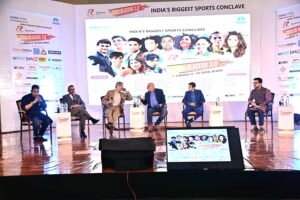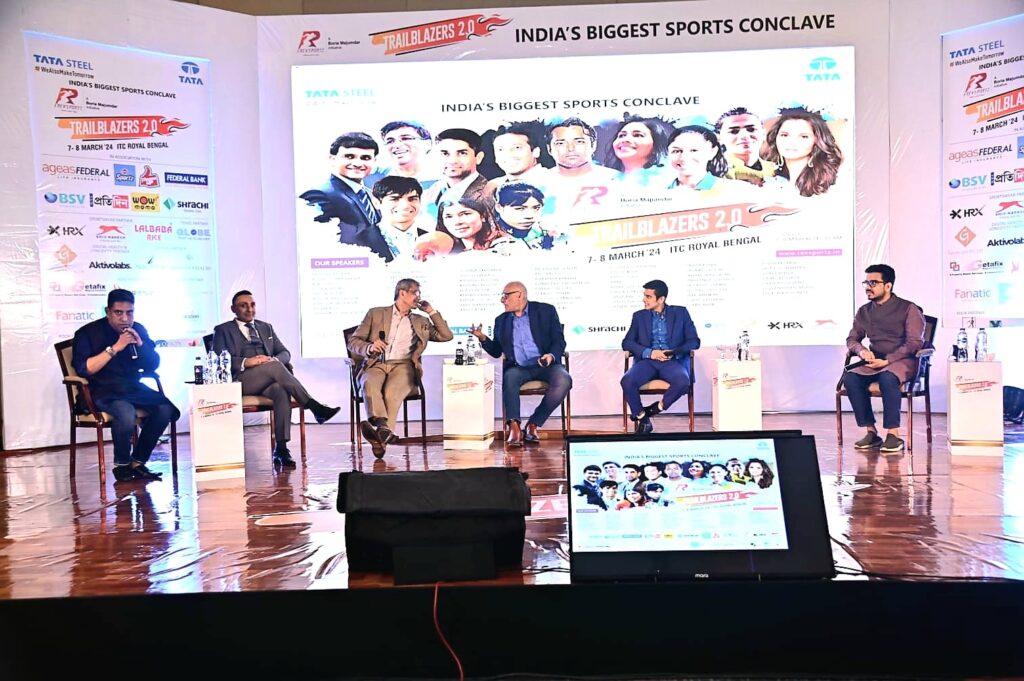
Breaking Ground: New Sports Narratives. This was topic for the eighth session on the first day of RevSportz Trailblazers Conclave 2.0. Rahul Bose, Saurav Ghosal, Sarvesh Kumar and Anil Singh were the speakers. The session was moderated by Boria Majumdar and Agnijit Sen.
These are stories from the world of sports. Not all of them are success stories. But they tell a different tale, of struggle, sacrifice and swimming against the tide. Essentially, these are the stories of sports with harsh realities often forming the backdrop.
Bose, the actor and president of the Rugby Federation of India, said understanding the reality was important. Training, coaching, developing may come after that. “Most of India’s rugby players are from tribal backgrounds,” he said.
“And irrespective of backgrounds, they are very poor. Daal-chawal on a daily basis is a big deal for them, forget the nutrition of an international athlete. In India, understanding the micro is important to start working on a macro level.”
Ghosal, India’s best-ever squash player, is in a sport which is not followed that widely by the average Indian sports fan. His Asian Games exploits have changed that a bit.
“We participants, we have become competitors.,” he said. “We have good players and role models. But instead of 4-5, we need 15 role models for the game to reach the next level. We have talent. We just have to give them the right environment if we want to see a rise in the quantum of achievements.”
Kumar of Tata Steel spoke about the company’s commitment towards the less-popular sports.
“We have always promoted sports outside cricket,” he said. “Be it archery, adventure sports or marathons — Tata Steel has always been involved with events which did not have other backers. If we see potential, we extend our support. The Kolkata marathon is a great example. Number of participants increased from 2,800 to 18,000 in seven years.”
Singh has had a pioneering effect in marathon in India. He has been instrumental in holding some of the leading events of the country, like the Mumbai Marathon. “The idea struck me after seeing the London Marathon,” he said. “That’s how we started in Mumbai. Of course we can’t match the legacy of the famous marathons in London or Boston, but we have made a start and these events have become very popular.”




